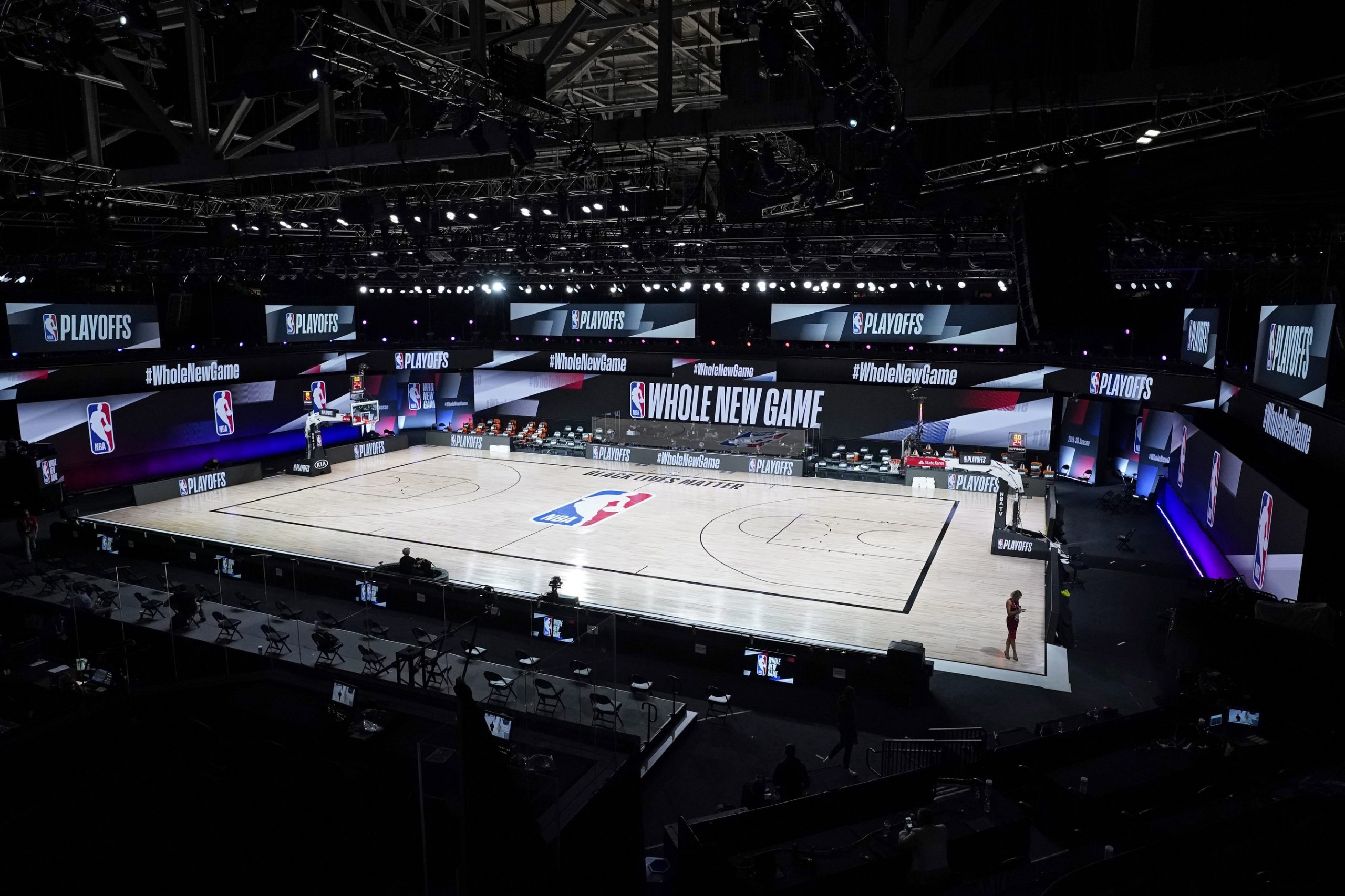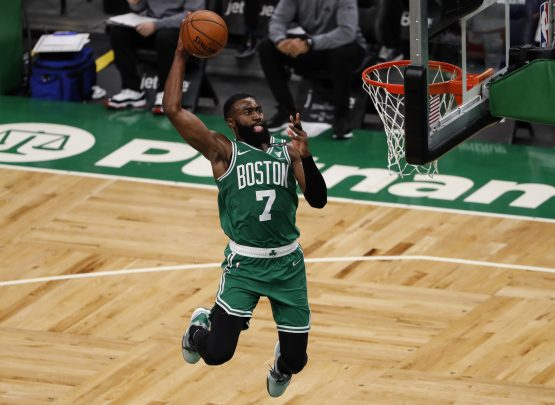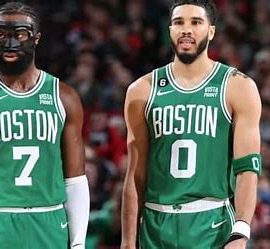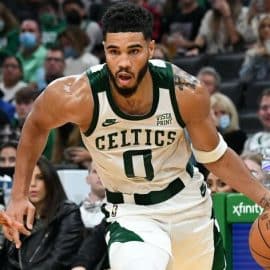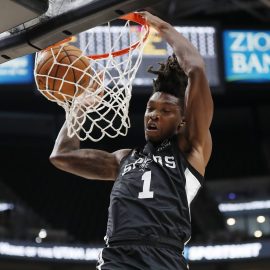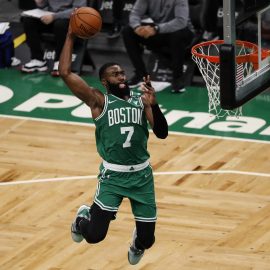Every morning, we compile the links of the day and dump them here… highlighting the big story line. Because there’s nothing quite as satisfying as a good morning dump.
Yahoo Sources: Substantial faction of players and star players pushing for NBA season to start Jan. 18 — MLK Day — with a free-agency commencement of Dec. 1.
— Chris Haynes (@ChrisBHaynes) October 28, 2020
One of the driving factors in pushing for a December start was money. The league reportedly stands to add about $500 million in revenue with the earlier start. That’s big money, however that might mean a little less to the league’s star players because of how revenue is split.
The $500 million is Basketball Related Income, which is split between owners and players. The $250 million spread out between 30 teams gives them each about $8.3 million. Even after subtracting the owner’s share of escrow and taxes, the remainder helps cover at least some operating costs.
Things are about to get real. Today is the deadline for the NBA & NBPA to hammer out the modifications to the CBA that will be required to start the 2020/21 season.
The poison pill in all this is that either party has the option to terminate the current CBA and begin negotiating a new one.
Do I think that’s going to happen?
I doubt it. As John noted last week, the NBA owners’ call for a December 22nd start date and a 72 game season is almost certainly a negotiating tactic, and the thing about negotiating tactics is that you rarely leak something less one-sided than your opening offer. Thinking back to the 2011 lockout, everybody knew the NBA was willing to lockout the players long before the lockout started. We’re not getting that vibe now.
For both the players and the owners, this is about money, but it’s about money in a very different sense. Back then, it was about changing the amount of ‘basketball related revenue’ that owners kept. Now, the question is how the league recoups as much money as possible from yet another disrupted season. Plainly, the owners would like to have as many games as possible with as little impact on next season as possible.
That means shortening the off-season. In point of fact, there is no way that the league can get back to anything resembling its original schedule without compressing at least one and probably two off-seasons.
For the players, things are much more complicated. Yes, the superstars who have just completed deep playoff runs are not in favor of a quick turnaround for the next season, but let’s look at the bigger picture here: Eight of the league’s teams haven’t played basketball competitively since March. Another six teams haven’t played competitive basketball since the middle of August. Four teams haven’t played since the end of August.
Now the conventional turnaround for championship caliber teams runs from the middle of June to the middle of October, four months. That’s considered acceptable.
Eighteen teams in the league will get at least four months off if the league restarts at the end of December.
Yes, that also means a rather short turnaround for teams like Boston, Miami, Los Angeles and Denver. But the NBA’s regular season has never really counted for much. Over half the league makes the playoffs every year, and with each round a seven game series, the cream almost always rises to the top. It doesn’t matter where you’re seeded, if you’re the best team in your conference when the playoffs start, you’re going to be in the Finals.
What I’m saying is that the NBPA is in an interesting position.
For the NBA, the situation is crystal clear: Start the season as soon as possible and play as many games as possible.
For the NBPA, you’ve got superstars who (1) don’t need the money, and (2) are likely coming off deep playoff runs. But these guys are practically by definition, a minority of the players in the NBPA. The vast majority of your members are players who have been sitting idle for quite a while or are in the ‘every little bit counts’ category when it comes to additional revenue from additional games.
If you’re a player on, say, the Atlanta Hawks, and you haven’t played basketball since March, and you realize that more games means more money, which means more of the money that everybody thinks you’re making, but which is actually going to agents, escrow, taxes, etc., are you going to side with the big guns who have less skin in the game?
Or are you going to push for an earlier start?
Another problem for the NBPA is how many games they’re willing to sacrifice in order to put off the start of the regular season.
The NBA is pushing for an aggressive timeline that will give them an almost complete 2020/21 season with minimal disruption to the 2021/22 schedule.
For the NBPA, any talk of player health that comes with pushing for a longer off-season goes out the window if they agree to a more compressed regular season than what the NBA is proposing. What’s the value in gaining an extra month off, if more than a month of games are crammed back into the schedule?
Yet, the NBPA is well aware that regular season games = money. Each game that is dropped from the regular season schedule represents money that is coming out of every player’s paycheck. And that impacts some players more than others.
If you’re the NBPA leadership, whose interests will you ultimately represent? Is it responsible for the union to be swayed by individuals who, let’s be honest here, have no particular need for a union?
The NBPA was not founded to look after the interests of guys like LeBron. LeBron doesn’t even need to play basketball anymore. He’s set for life–and if he’s smart with his money, so are his kids, and, perhaps, their kids as well.
The NBPA was founded because guys at the bottom of the pile were getting treated like crap.
The back side of the “plumbers and truckers” presentism that pervades immature commentary on the early days of the NBA is that role players didn’t get paid very well and it was a nine-day wonder for one of them to have a contract that lasted longer than a year. If they occasionally took blue-collar jobs in the offseason, it was because for the most part they got crap pay and had no job security.
Honestly, I think the NBPA should get onboard with an earlier start with the proviso that players and teams won’t be directly penalized for taking what might otherwise be considered extreme load-management steps. If LeBron doesn’t want to start playing basketball on Christmas, fine. Great. Skip the first month of the season. It’s not like the Lakers are going to miss the playoffs because LeBron missed the first 12-15 games of the season.
And for the NBA? I think 72 games and normal playoffs, all wrapped up in time for the Olympics is ridiculous, even with the December 22nd start. What the NBA is proposing is that they’ll start the season two months late and finish it close to the normal end date, which would be fine, except they’re clipping only ten games, which is less than a month, from the schedule.
For the NBA, they have to be willing to move on the 72 game total. They can’t reasonably expect to cut the off-season as short as they’re cutting it for some teams and cram more than a month’s worth of extra games into the regular season.
Honestly, I think it’s in the best interests for all parties to start the season sooner, rather than later, and that once the season starts, games should be scheduled as they would normally be scheduled.
The NBPA and NBA should focus their efforts on creative ways to supplement revenue, given that arenas are likely to be empty and that any way you slice it, there’s going to be less regular season TV revenue.
Page 2: Under-the-radar free agent targets
Jordan Clarkson
Duncan: “I think more than anything, it gives them a creation boost off the bench… I think Jordan Clarkson is a guy that can do that. He has enough on-ball creation, has enough pull up shooting to take some pressure off of Kemba Walker, guys like that, when they go to the bench. Him kind of swapping out some of those long twos that he fell in love with in LA in Cleveland, swapping those out for 3′s have made him a more dangerous player…And if you’re playing him and (Marcus) Smart together, that takes some of that on-ball creation role off of Marcus Smart, who can still get a little erratic when he has to create more than he should.”
Yesterday’s Locked On Celtics podcast features Nekias Duncan and John Karalis in a conversation about potential free agent targets for the Celtics, who will have one of two mid-level exceptions to play with (and not much else).
Jordan Clarkson is an interesting thought as a guard coming off the bench. Especially given the way Romeo Langford’s development last season was hampered by injury. Clarkson is not a long-term solution, but he could provide some of the spark that we saw from Terry Rozier before he got too big for his britches.
Add The Sports Daily to your Google News Feed!
